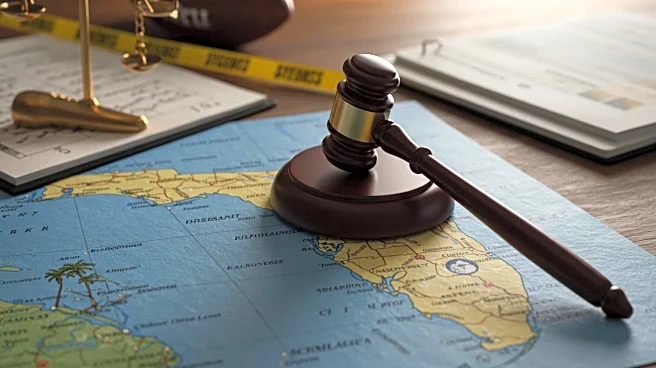What's Happening?
A federal judge has mandated the cessation of operations at the 'Alligator Alcatraz' immigration detention center in the Florida Everglades within two months. The decision, issued by U.S. District Judge Kathleen Williams, halts further expansion of the facility, which was built without the required environmental review. The ruling comes in response to a lawsuit filed by environmental groups and the Miccosukee Tribe, who argued that the center adversely affected the wetlands. The facility, initially intended to support President Trump's immigration policies, will see its detainee population decrease as individuals are transferred to other centers. Florida Governor Ron DeSantis criticized the ruling, labeling the judge as 'activist.'
Why It's Important?
The closure of the 'Alligator Alcatraz' detention center highlights ongoing tensions between state immigration policies and federal environmental regulations. The decision underscores the legal challenges faced by state-led initiatives that bypass federal environmental assessments. This ruling may impact Florida's immigration enforcement strategy, potentially increasing pressure on other detention facilities in the state. The case also reflects broader national debates over immigration policy and environmental conservation, with significant implications for how similar projects are evaluated and implemented in the future.
What's Next?
The state of Florida has filed a notice of appeal against the ruling, indicating that the legal battle over the detention center's future is not yet concluded. As the case progresses, the state may seek to justify the facility's location and operations, potentially leading to further legal scrutiny. Meanwhile, the transfer of detainees to other facilities will require logistical coordination and could strain existing resources. The outcome of the appeal could set a precedent for how environmental and civil rights considerations are balanced in immigration policy enforcement.










